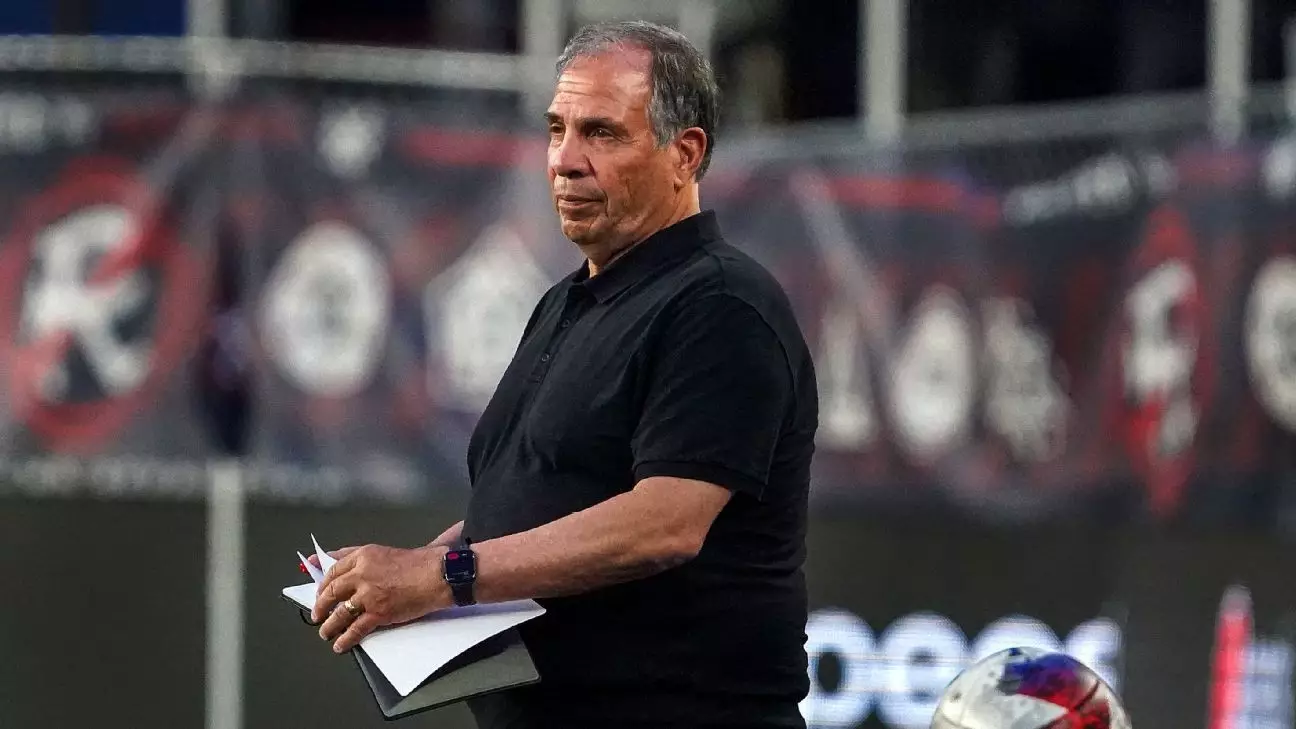The recent announcement that Bruce Arena is set to take on the role of sporting director and head coach for the San Jose Earthquakes marks a significant turning point for a franchise in dire need of revitalization. Coming off a dismal season that saw the Quakes languish at the bottom of Major League Soccer (MLS) standings, with only 21 points to their name, Arena’s return to the league presents an intriguing scenario filled with both challenges and opportunities.
The Earthquakes have struggled substantially, finishing last in a fiercely competitive league and setting an unfortunate precedent with a record 78 goals conceded in a single season. This performance calls for not just a change in strategy but a fundamental overhaul of the team’s ethos and dynamics, a task that Arena is well-equipped to handle. His previous successes with the LA Galaxy, where he led the team to three MLS Cup titles, showcase his remarkable ability to transform underperforming squads into champions. Arena’s approach will likely hinge on instilling discipline, fostering cohesion, and, crucially, attracting new talent that can reshape the team’s future.
Arena’s imposing experience in leadership positions at high-profile MLS clubs affords him a certain prestige that may be just what the Earthquakes need. However, the coaching landscape has evolved since his last role in the league, and he will face the challenge of adapting to modern trends in player development and tactical innovation. His acknowledgment of the significant work that lies ahead emphasizes the urgency of his role.
The commitment from owner John Fisher, coupled with the club’s front office willingness to invest in both player and facility upgrades, speaks volumes about the club’s intentions. Arena’s comments about enhancing the player environment at PayPal Park—by improving locker rooms, adding practice fields, and optimizing dining facilities—indicate a holistic approach to player welfare and performance. This focus on creating a conducive environment for players could build a foundation that translates off the field into improved performances on the pitch.
The notion that success transforms within a positive organizational culture cannot be overstated. By focusing on these foundational elements, Arena can help foster an atmosphere that not only attracts but retains top talent, creating a desirable club reputation in an increasingly competitive landscape.
A crucial aspect of Arena’s plans moving forward involves revitalizing the roster—a task requiring a measured and strategic approach. Arena’s assertion that the team will need to recruit three to five new players stands as a realistic acknowledgment of the current gaps within the squad. His insight into the roster’s untapped potential suggests an optimistic outlook for the team, indicating that the existing players are better than their 2024 performance reflects.
By weaving patience into the larger rebuilding narrative, Arena is setting reasonable expectations while simultaneously igniting hope within the fan base. While concrete improvements will take time, the initial phases aim at laying the groundwork for a squad capable of competing much more effectively.
His hiring dovetails with the fundamental truth of professional sports: assessing potential and working towards unlocking it is a nuanced and complex endeavor. For the Earthquakes, growth might not be instantaneous, but it can certainly take the form of incremental improvement.
It is essential to recognize the backdrop against which Arena returns to MLS. His previous departure from the New England Revolution involved a series of personal and professional challenges, leading to self-reflection and a public acknowledgment of mistakes made. The repercussions of that episode could weigh on his reputation, and how he reconciles with this past as he embraces a new challenge could define the trajectory of his second act.
An open dialogue around accountability may enhance his emergence as a leader while also reaffirming the strength of character required to address internal challenges. Players under his guidance may benefit from such candid discussions, building trust and cohesion. As he moves into his multifaceted role, balancing the fine line between being authoritative yet relatable will be paramount.
Arena’s appointment brings a promising spark to the San Jose Earthquakes as they seek to recover from one of the most challenging seasons in the franchise’s history. The need for a well-defined vision, a rebuilt roster, and an unwavering commitment to restoring the team’s competitive identity is palpable. Should Arena harness the momentum of his past successes while adapting to the contemporary game, there is a valid chance that the Earthquakes could once again emerge as a formidable force in MLS. The stakes are high, and the road ahead is laden with challenges, but with the right mix of experience, hiring strategy, and player development, revitalization may indeed be on the horizon for the San Jose Earthquakes.

Leave a Reply